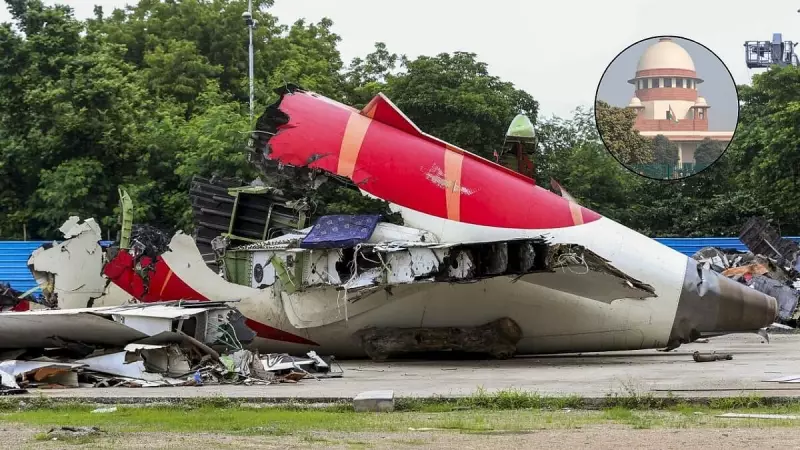
In a courtroom moment that transcended legal formalities, India's Supreme Court delivered words of profound comfort to a grieving father, offering solace nearly four years after the tragic Air India Express flight crash in Kozhikode that claimed his son's life.
A Father's Long Search for Answers
The emotional hearing saw the Supreme Court directly addressing Captain Sabharwal's father, who had been carrying the heavy burden of uncertainty about his son's role in the August 2020 tragedy. The court's bench, displaying remarkable sensitivity, made it unequivocally clear that the pilot should not bear blame for the catastrophic accident.
The Court's Healing Verdict
"Don't carry the burden on yourself," the justices counseled, their words resonating through the courtroom. This powerful statement came during proceedings where the court emphasized that Captain Sabharwal was not at fault for the ill-fated Flight IX-1344's crash at Kozhikode's table-top runway.
The aircraft, operating as a Vande Bharat Mission flight from Dubai, met with disaster while attempting to land during heavy rainfall. The accident resulted in the heartbreaking loss of 21 lives, including both pilots, and left numerous others injured.
Closure After Years of Uncertainty
For Captain Sabharwal's father, these words from the nation's highest court represented more than just legal clarification—they offered emotional resolution after years of anguish. The court's compassionate approach highlighted the human element often lost in technical investigations and legal proceedings.
The judicial acknowledgment serves as an official vindication of Captain Sabharwal's professional competence, potentially helping the family find some measure of peace after their devastating loss.
Broader Implications for Aviation Safety
This Supreme Court intervention comes amid ongoing discussions about aviation safety protocols, particularly concerning table-top runways and adverse weather operations. The court's stance reinforces that systemic factors, rather than individual error, were primarily responsible for the tragedy.
The hearing also underscores the judiciary's evolving role in addressing the emotional dimensions of tragic incidents, demonstrating that justice encompasses both legal resolution and human compassion.






